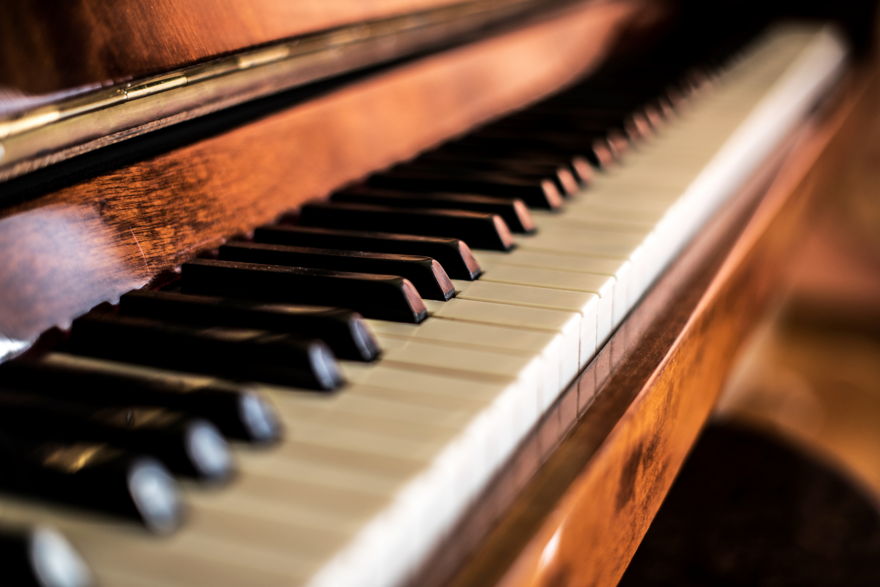What my piano teacher taught me about writing.

My husband signed me up for piano lessons a couple of Christmases ago. It was a bold and loving move, and I was excited and terrified when I read the card. I wanted to play the piano so much. For years, I dreamed about one day learning how to play. But I was too afraid to sign up for lessons myself, and he knew that.
It wasn't easy, those first few weeks. I felt like a dolt: my fingers didn't work right, and everything I played sounded childish and stunted. But after about five months of practicing, I learned some chords. I learned that they were called triads. The whole piano is divided up into triads. There are twenty-four of them, and they repeat.
One day, my teacher gave me this exercise: put all twenty-four chords in a jar. Pick four of them at random. Loop them. Write a stanza. Play along with the words. In other words: write a song.
What? Five months of basic, primer lessons, and now she wanted me to write a song? I did not feel ready for this. Far from it. I balked at the four random chords. Why did she want me to pick them at random? Wouldn't that sound terrible? This is what she told me:
All of the chords are connected.
They all have a relationship to each other, she said. Your song will find the relationships.
She was right. I picked four chords that sounded awful together. And with enough attention, I stopped hearing them as awful. When I stopped thinking about it that way, I could hear them as a conversation. The different chords were in a relationship, and it was the way I played them – the context I put them in – that turned them into an aural kind of story.
If you've completed the Lesson Six assignment in the Story Course (I see you nodding, Story Intensives), you may have just had this experience yourself, through writing.
I learned many things from my piano teacher, and not just about music. I'm not a singer-songwriter now or anything, but I am so grateful for the faith-filled gift that my husband gave me for Christmas that year. I would never have signed myself up for those lessons. Too much was at stake!
But it was one of the best gifts I've ever received.
xoxo,

ps. If you know a writer who wants to sign up for the Story Course but is too scared to make it happen, and if you're feeling bold and loving, consider gifting it to them this year (just check off "This product is for someone else" in the order form.

10 comments
Leave a comment